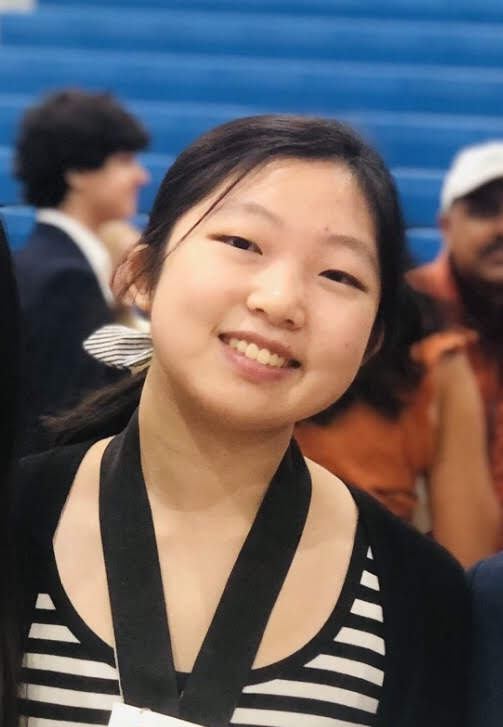Social Impact Internships: Eileen Liu (’24)

Bringing BIPOC Representation into the Classroom
This fall, I’m interning as a Curriculum Creator for Almost Fun, a non-profit organization dedicated to providing culturally-responsive learning resources for BIPOC and low-income students. As a Curriculum Creator, I write math lessons for Almost Fun and connect those math lessons to familiar concepts or social justice issues.
At Almost Fun, we have a weekly reading and discussion to learn more about the American education system and how it affects BIPOC students. This past week we listened to a podcast starring Rodney Robinson, a teacher at a juvenile detention center. He was also 2019’s Teacher of the Year. During the podcast, Robinson talked about how his students, and often their parents too, had had bad experiences with school. When he taught his students, he tried his best to build up their confidence in their academic abilities. He hoped that when his students left, they would feel like they could succeed even in a different school.
After our discussion, I felt like I better understood the struggles other students might go through. Some of the students using the Almost Fun website will have had negative experiences at school, and as fun as the website is, learning math may still be an intimidating experience for them. With this in mind, I better understood the importance of making the lesson content easy to understand, as well as the importance of linking the math to familiar concepts and making it fun and interactive. In the future, I will also try to provide more opportunities for students to try problems on their own and succeed. Many of these students won’t have a Rodney Robinson in their lives, so Almost Fun might be the best source of academic encouragement they have.
One of my other responsibilities at Almost Fun is revising their SAT practice questions to be more culturally-responsive. This mostly involves changing the names of characters in questions to include more BIPOC representation. During this process, I thought a lot about representation in popular media. For example, in one of the first questions I revised, two characters had a break up. It was a common situation in TV shows, and right away, I could think of half-a-dozen white characters who would fit into the question. However, thinking of a BIPOC couples in pop culture took me significantly longer.
This moment made me realize how few BIPOC characters exist in TV shows and popular media, and how limited representation is. Most of my favorite TV shows had a predominantly white cast, and the more diverse characters were usually minor characters or guest stars. I also realized this problem wasn’t just limited to TV. Books, movies, and even math problems all lacked diversity and representation.
I remembered how often I searched for strong female characters in the TV shows I watched and how excited I was to see Wonder Woman (2017), because it was the first female superhero movie to come out in a long time. I realized that, in this regard, the students I was writing for were probably a lot like me. They wanted to be represented. I began to wonder what it would be like if BIPOC representation in math became the norm.
Changing these SAT practice questions was what really made me realize the importance of Almost Fun’s work. As Rodney Robinson said, we need to encourage struggling students. I realized that adding representation to math problems was a form of encouragement. When students see themselves in math problems, the problems become more familiar and that much less intimidating. And better yet, what if the math problems made cultural references students were familiar with? Wouldn’t they become almost fun to solve? (Personally, I would much rather solve a math problem involving Tenzin and Lin Beifong than Jeff and his unnamed girlfriend.)
As I continue to work for Almost Fun, I hope I’ll be able to take what I’ve learned and make the lessons I write in the future even more responsive to students’ needs.
Want to learn more about the PKG Social Impact Internships Program? Visit our webpage to learn about ELO opportunities for IAP and spring 2021, and stay tuned for information for summer 2021 postings!
Tags: Anti-Racism, K-12 Education, Social Impact Internships, Social Impact Internships Fall 2020
